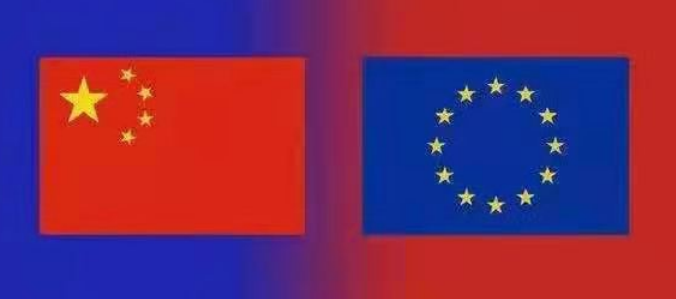EU-China have reached the Investment Agreement
2021. 1. 4
EU-China have reached the Investment Agreement

The conclusion of the negotiations for an investment treaty between China and the European Union — the EU-China Comprehensive Agreement on Investment (CAI) — after more than seven years, which was announced during the China-EU leaders' meeting via video conference on December 30, 2020, marks a milestone in their joint endeavour to reach a mutually beneficial deal that can push the level of economic and trade cooperation to a new high.
The core content of CAI focuses on the following four aspects: (1) Ensure that mutual investments are protected, respect intellectual property rights, and ensure transparency in subsidies; (2) Improve market access conditions for both parties; (3) Ensure that the investment environment and regulatory procedures are clear, fair and transparent ; (4) Improve labour standards and support sustainable development.
From EU investors’ side, the CAI will ensure that EU investors achieve better access to a fast-growing 1.4 billion consumer market, and that they compete on a better level playing field in China. For the first time, China has made a commitment in the form of a negative list in all industries, including service and non-service industries, to achieve full integration with the foreign investment negative list management system established by the PRC’s Foreign Investment Law. The most noteworthy is that China agrees to open markets in multiple areas to EU companies, including manufacturing, financial services, real estate, construction, and ancillary services that support maritime and air transportation.
From China investors’ side, China has won the EU's agreement to the higher level of the EU’s market access, such as Chinese investors’ may make the investment in renewable energy. However, EU sensitivities, such as in the field of energy, agriculture, fisheries, audio-visual, public services, etc. are all preserved in CAI.
In addition, with respect to market access restrictions that do not discriminate against foreign investment but have a significant impact on the establishment and operation of enterprises, both sides also promise not to implement the limitation on the number of enterprises, output, turnover, directors and senior management, local R&D, export performance, and export performance in most economic fields.
Regarding fair competition rules, both sides are based on creating a business environment governed by law and reached consensus on issues closely related to corporate operations such as state-owned enterprises, subsidy transparency, technology transfer, standard-setting, administrative law enforcement, and financial supervision.
The core content of CAI focuses on the following four aspects: (1) Ensure that mutual investments are protected, respect intellectual property rights, and ensure transparency in subsidies; (2) Improve market access conditions for both parties; (3) Ensure that the investment environment and regulatory procedures are clear, fair and transparent ; (4) Improve labour standards and support sustainable development.
From EU investors’ side, the CAI will ensure that EU investors achieve better access to a fast-growing 1.4 billion consumer market, and that they compete on a better level playing field in China. For the first time, China has made a commitment in the form of a negative list in all industries, including service and non-service industries, to achieve full integration with the foreign investment negative list management system established by the PRC’s Foreign Investment Law. The most noteworthy is that China agrees to open markets in multiple areas to EU companies, including manufacturing, financial services, real estate, construction, and ancillary services that support maritime and air transportation.
From China investors’ side, China has won the EU's agreement to the higher level of the EU’s market access, such as Chinese investors’ may make the investment in renewable energy. However, EU sensitivities, such as in the field of energy, agriculture, fisheries, audio-visual, public services, etc. are all preserved in CAI.
In addition, with respect to market access restrictions that do not discriminate against foreign investment but have a significant impact on the establishment and operation of enterprises, both sides also promise not to implement the limitation on the number of enterprises, output, turnover, directors and senior management, local R&D, export performance, and export performance in most economic fields.
Regarding fair competition rules, both sides are based on creating a business environment governed by law and reached consensus on issues closely related to corporate operations such as state-owned enterprises, subsidy transparency, technology transfer, standard-setting, administrative law enforcement, and financial supervision.



